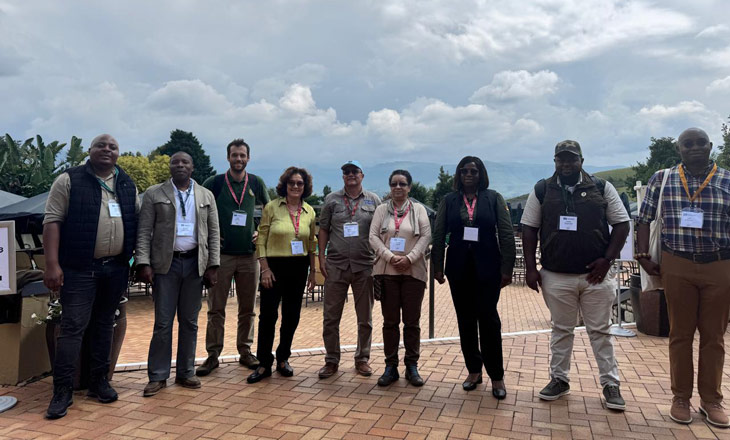The Foundation for the Conservation of Biodiversity – BIOFUND participated, from March 17 to 20, 2025, in the 2nd Southern African Mountain Conference (SAMC25), held under the auspices of UNESCO and supported by dozens of sponsors, in the Drakensberg, South Africa. This community of practice served as an excellent platform for demonstrations, encouragement of research, sharing of experiences, and promotion of policies on the region’s mountain ecosystems.
Published at 21/04/2025
Second Southern African Mountain Conference: Overcoming Limits and Barriers
The conference brought together more than 300 participants from various countries, including scientists, lecturers, students, government representatives, non-governmental organizations, intergovernmental entities and the United Nations, as well as members of local communities and civil society. The event featured several special sessions dedicated to the rich biodiversity of mountains, their cultural importance, carbon market opportunities, and transboundary conservation of mountain regions.
Mozambique was represented by BIOFUND (with the support of the MozNorte Project, funded by the World Bank), the WWF/ReGeCom/RADEZA consortium (implementers of PROMOVE Biodiversidade in Mount Mabu, with support from this programme), as well as by representatives of ANAC, Chimanimani National Park, and Gorongosa National Park (with support from the PNG). Regional partners from Malawi (Mount Mulanje) and international scientists with experience working in Mozambique, namely biodiversity and protected areas specialists, also participated.
During the plenary and parallel sessions, various presentations were made highlighting the biodiversity of Mount Mabu and other inselberg ranges in Mozambique, as well as ongoing activities to engage and empower local communities. Experiences from Gorongosa National Park were also shared on restoring the Afromontane system, balancing community development with biodiversity conservation.
There were also fascinating presentations on groups of mountain-loving volunteers, as well as the relevance and importance of planning and designing mountain trails for leisure and tourism purposes, an area of great potential in our country, yet to be explored!
The Mozambican representatives returned motivated by the emphasis given to mountain systems as sources of water, repositories of (often unique) biodiversity, and providers of other ecosystem services. This enthusiasm gave rise to preliminary discussions for the creation of a national movement to raise awareness and promote the conservation and sustainable use of mountain ecosystems.


